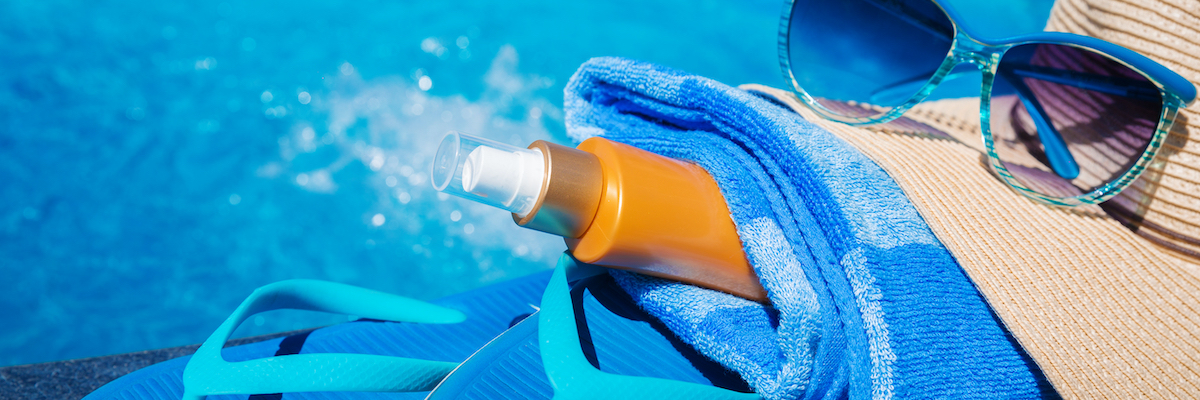
Sunscreen is the most important staple in any skincare regimen. Whether you’re on your way to the beach or heading to your desk job, wearing sunscreen every day is important in protecting the health of your skin. Given the importance of this skin protectant, let’s discuss a few common misconceptions to help you make the best decision for your skin this upcoming summer season.
A higher SPF is always better
False. Once an SPF goes over 30, which is a fairly common find in most drugstores, the increase in protection is negligible, according to the Skin Cancer Foundation. A sunscreen’s SPF primarily refers its ability to block the sun’s ultraviolet-B (UVB) radiation, which is the main cause of sun burn and in worse cases, sun poisoning. For example, SPF 30 sunscreen blocks about 97% of UVB rays and SPF 45 sunscreen blocks about 98% of UVB rays. That’s a difference of only 1%. Even an SPF 100 sunscreen isn’t guaranteed to prevent UVB rays entirely. Instead of focusing on the number of the SPF label, focus on reapplying the sunscreen approximately every two hours of exposure to the sun.
It doesn’t matter how you apply sunscreen
False. It’s arguably the most importance decision you will make in regard to protecting yourself from the sun besides actually deciding to use sunscreen in the first place. The SPF protection in sunscreen is tested using ounce measurements, which is roughly a full shot glass. You need to use that amount of sunscreen on all body parts that will be exposed to the sun, including your face. Studies show that people on average use far less than the recommended amount, so don’t be afraid to be generous when applying.
Darker skinned people don’t have to wear sunscreen
False. Anyone with skin is susceptible to the sun’s UVB radiation. It has been suggested that people with a darker skin pigment may have a reduced chance of experiencing skin cancer, but that does not mean their skin cannot be damaged by the sun.
Getting an artificial tan before going to the beach will prevent sunburn
False. There’s no sugarcoating it: getting an artificial tan from a tanning bed will damage your skin. If you spend extended time in the sun without sunscreen after getting a tan, you have the potential of further damaging your already damaged skin.
It’s cloudy outside, so I don’t need to wear sunscreen
False. Although the sun may be hidden behind the clouds, its UVB radiation definitely isn’t. Did you know that as much as 40% of the sun’s rays can penetrate through clouds and even reach you if you aren’t directly outside?
Sunscreen doesn’t have an expiration date
False. Just like food, sunscreen has an expiration date. Sunscreen breaks down rather quickly and loses its effectiveness, especially when it’s left in unsuitable environments, such as a hot car. Most sunscreens have an expiration date printed on the bottle, so pay close attention to it. If there is no printed expiration date, we recommend purchasing a new sunscreen every season to be on the safe side.
This blog provides general information and discussion about medical, cosmetic, mohs, and surgical dermatology. The words and other content provided in this blog, and in any linked materials, are not intended and should not be construed as medical advice. If the reader or any other person has a medical concern, he or she should consult with an appropriately licensed dermatologist or other healthcare worker.